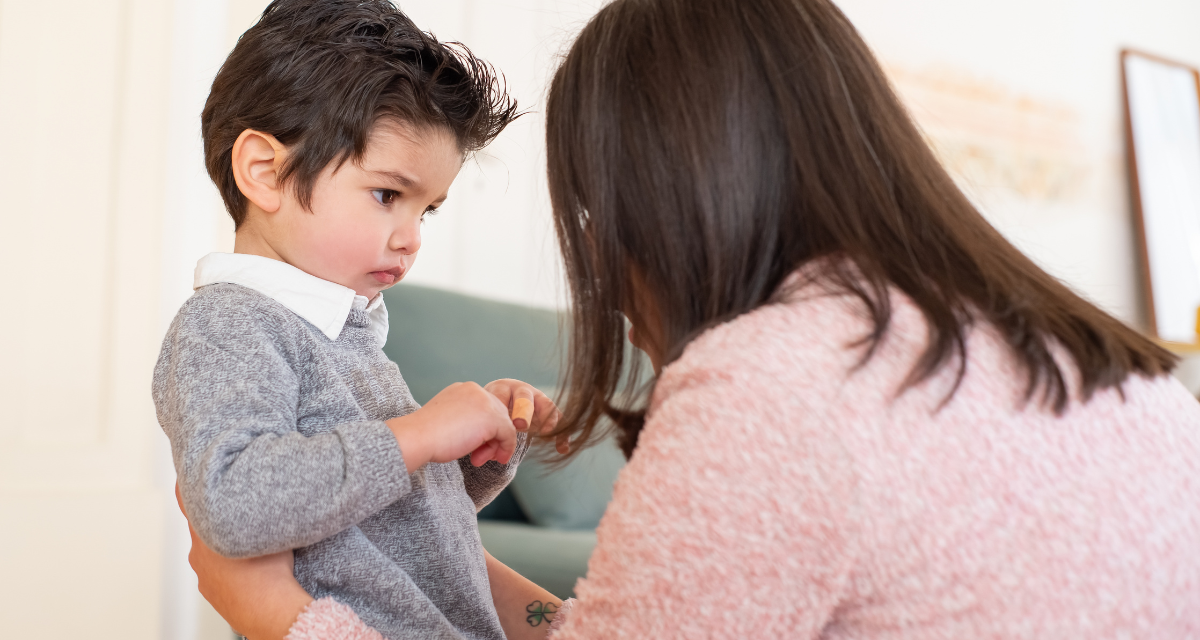
Reframe a Child’s Negative Talk into a Positive
Everyone has some sort of internal dialogue circulating in their mind. Sometimes we express our self-talk aloud verbally for all to hear, but many times it is simply thoughts that go on in our psyche.
Whatever the case, it is vital for children to eliminate negative self-talk entirely and turn it into positive self-talk to promote self-confidence and self-esteem.
Here are a few ways to approach reframing negative self-talk and negative language in children of all ages and turn it around for the better.
Ease Their Frustration
One of the reasons children express negative self-talk so openly is because they have reached the frustration level and feel overwhelmed. We do the same thing as adults when we get beyond frustrated. They may say:
- I’m horrible at everything!
- I’m no good at this!
- I mess up everything I try!
These comments, as caring adults, are heartbreaking because if they are verbalizing this, then what must they be feeling inside constantly?
Instead of letting the child wallow in self-destruction, calmly point out that what they say is not valid. Discuss with them their strengths and positive points. Once they realize they may be acting a bit dramatic, ask them how they get better at something. Of course, the answer is to practice. To help them practice! Then remind them that is what you are there for.
Use Humor
While doom and gloom may be present in a child’s negative self-talk, it doesn’t mean they can’t find the humor in it.
Relate a couple of humorous stories from your childhood, when things just didn’t seem to be going your way, and how you overcame these struggles. Explain to them that you used to be so bad at something that nobody wanted you on their team or as their study partner. Other children would turn around and walk in the other direction when they saw you approaching. Let them know that they aren’t alone and that many have faced likewise.
Next, ask them how they think you overcame it and illustrate exactly how you did. And instead of declaring:
I can’t do this!
Tell them there is power in words and change their thoughts too:
I can do this!
It may take me a bit longer, but I will get this right!
Putting Goals on Paper
Something magical happens when someone writes their goals down on paper that they only previously kept buried in their thoughts. It introduces a person’s dreams and objectives into the universe; only good things seem to happen there. Successful people do this all the time, so having children do this once a month is a way to constantly set goals for what they want to accomplish shortly.
Dr. Gail Matthews, a psychology professor at the Dominican University in California, completed a study on goal-setting with almost 270 people participating in the research. The results demonstrated that people are 42 percent more likely to achieve their goals if they write them down. Whether this happens because it is a constant motivation for the individual or if it is somehow bringing good karma their way can be left up to debate.
Sit with the child displaying a good amount of negative self-talk and help them write down their goals. Focus on positivity and on how to fix these issues.
Eliminate the Negative Words From the Child’s Vocabulary
Negativity breeds even more negativity into a person’s life, and positivity brings on more positive things. It is all a chain reaction, and you get to decide which path you want to follow.
So help the child eliminate the negative words that can lead to a downward spiral. Words such as:
- Can’t
- Won’t
- Nobody
- Nothing
- No
- Not
- Horrible
- Sad
- Stupid
- Fail
- Impossible
Instead of the child saying they can’t do something, positive self-talk will replace the negativity and lead the kid to new experiences.
It Won’t Happen Overnight
IAchieve could help! We have professional tutors that can work with students of all ages and in any subject area. If a couple of subjects lead to negative talk, our tutors can help turn those subjects into strengths! This must be worked on with the child through their parents, teachers, friends, and whoever might be of assistance.
RELATED BLOG POSTS
Why Mental Health Needs Have to Be Addressed More Closely for Kids



